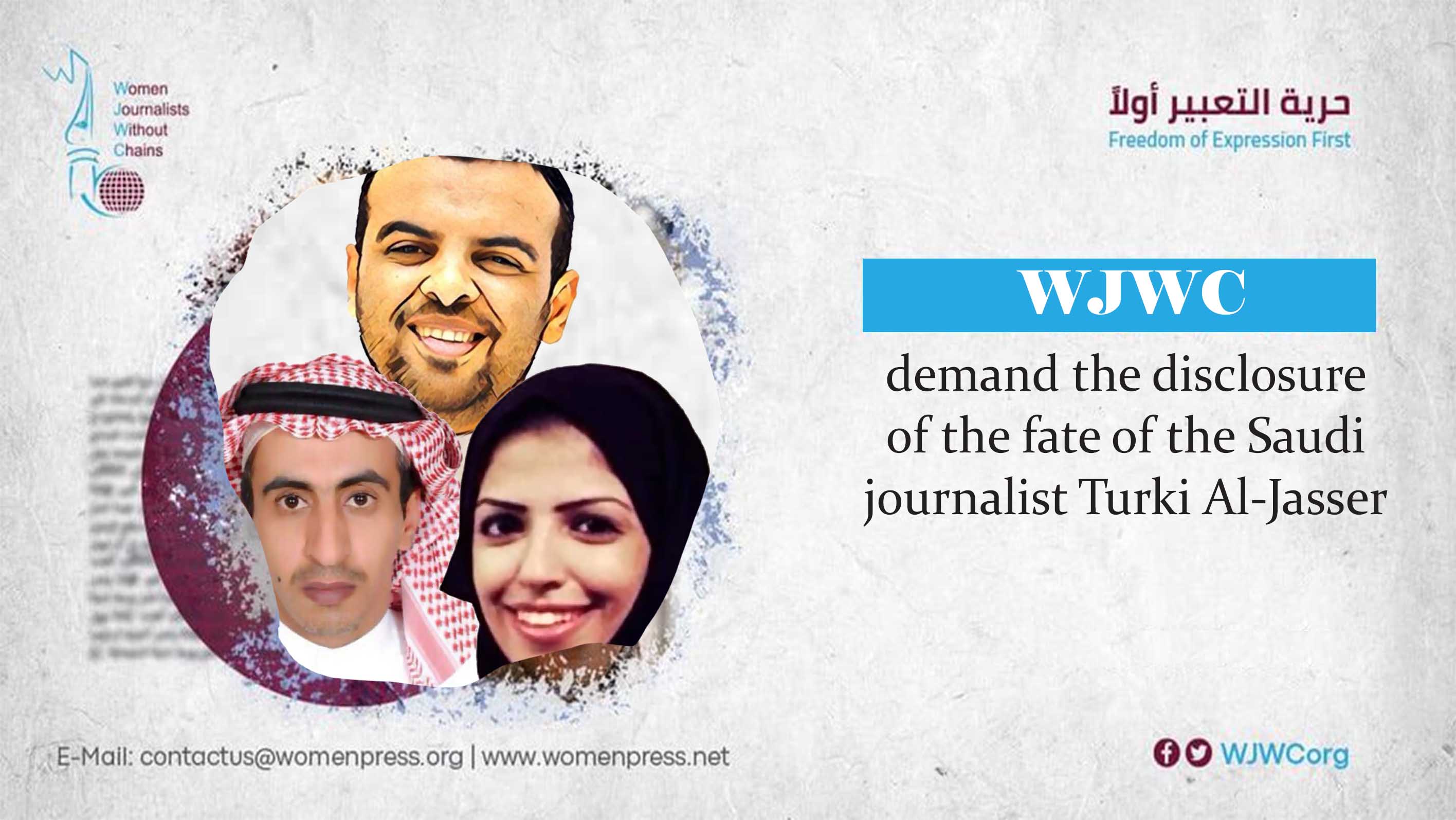News

Women Journalists Without Chains demand the disclosure of the fate of the Saudi journalist Turki Al-Jasser.
Women Journalists Without Chains called on the Saudi authorities to reveal the fate of journalist Turki Al-Jasser, and to allow his family and lawyer immediate access to him.
The Saudi authorities arrested journalist Al-Jasser on March 2018, as part of a campaign that followed the accession of Prince Mohammed bin Salman to the position of Saudi crown prince. Two years after his arrest, rumors circulated that he had died under torture, before the authorities allowed him to make a brief call to his family in 2020, and there is no news of him again until today.
In February 2020, the Saudi government said in a memorandum to the United Nations Human Rights Council that the journalist, Al-Jasir, is in Al-Hayer prison ''notorious''. Since then it has not been accessed.
Last July 2022, Turki Al-Jasser's mother died, before the Saudi authorities allowed her to meet her son, nor did they allow him to attend his mother's funeral and take the farewell look.
Al-Jasser is considered one of the victims of the hacking of blogs on Twitter, who used to run a critical blog on Twitter under the name "Kashkool". The Saudi authorities are facing credible accusations of hacking the phones and e-mails of journalists and human rights activists over the past few years.
In Women Journalists Without Chains, we condemn the Saudi authorities' continued disappearance of journalist Turki Al-Jasser, and we call on them to disclose his fate, "and the fate of hundreds of prisoners of conscience who are subjected to grave violations, beginning with enforced disappearance and secret trials, and not ending with the denial of the right to defense and contact with the outside world."
In the same context, the Saudi authorities continue to hide the Yemeni journalist Marwan Al-Muraisi since June 1, 2018, after he was arrested from his home in Riyadh by members of the National Security Forces and taken to an unknown destination. His father passed away and his son is still forcibly disappeared to this day.
Since 2017, the Kingdom has been trying, through its media, to show a radical social transformation in the Kingdom towards other openness and granting society more public freedoms. However, these slogans coincide with an excessively harsh repressive policy against opinion-makers who are crowded in prisons.
The authority in the Kingdom does not show any tolerance towards freedom of expression in the Kingdom, although it promotes a different image of the Kingdom of Saudi Arabia through social openness. Perhaps the horrific fate of journalist Jamal Khashoggi, which took place inside the Saudi Consulate in Istanbul on October 2, 2018, is the clearest confirmation of the extent to which the authority there can go against those who try to express their opinions in public affairs in the Kingdom.
This also reinforces the fate of the Saudi Dr. Salma Al-Shihab, who was arrested in January 2021 while returning from Britain to spend her vacation in the Kingdom, and was sentenced to 34 years in prison for exercising the right to expression on social media and for her demands for justice for prisoners of conscience.
Women Journalists Without Chains stands in solidarity with all victims of arbitrary detention and enforced disappearance in the Kingdom and calls on the authorities to abandon the policy of repression and abuse and undermining public freedoms. We also urge the Saudi government to release prisoners of conscience and others who have been arrested because of their practices of the right to freedom of opinion and expression and to cancel the sentences issued against them.
Issued by Women Journalists Without Chains
November 28, 2022 AD
